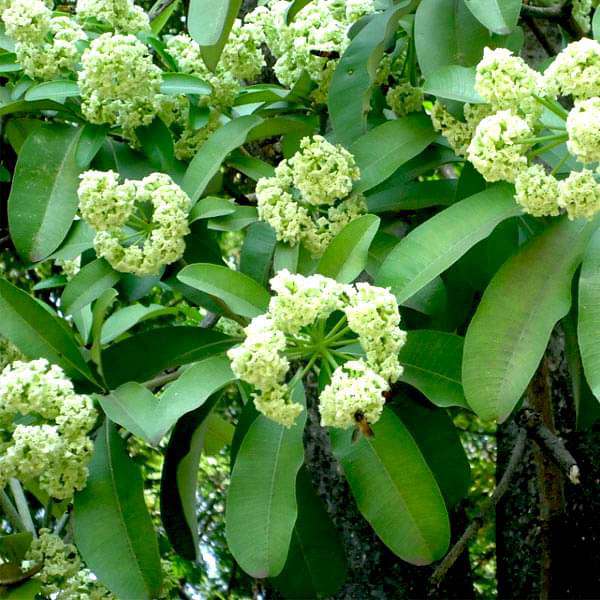
Alstonia Scholaris, Ditabark - 0.5 kg Seeds
(MRP Inclusive of all taxes)
- Shipping ₹79 for entire order
- Dispatch in 2-3 weeks
- Country of origin: India

(MRP Inclusive of all taxes)
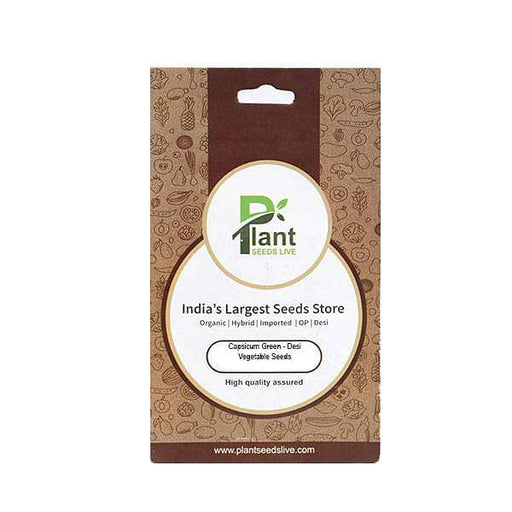
 Save 25%
Save 25%
Capsicum Green - Desi Vegetable Seeds Capsicum Green, also known as bell pepper, is a vibrant and nutritious addition to your garden. Thes...
View full details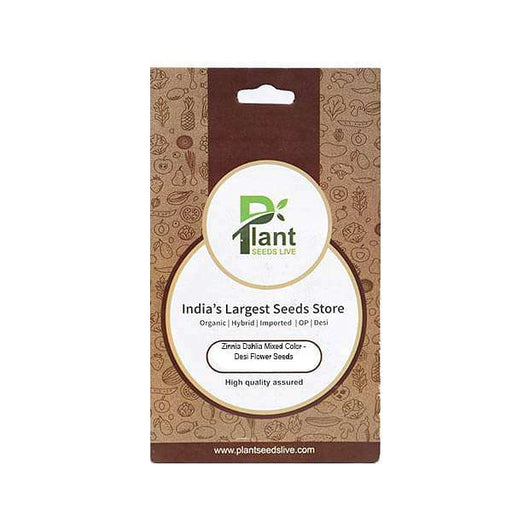
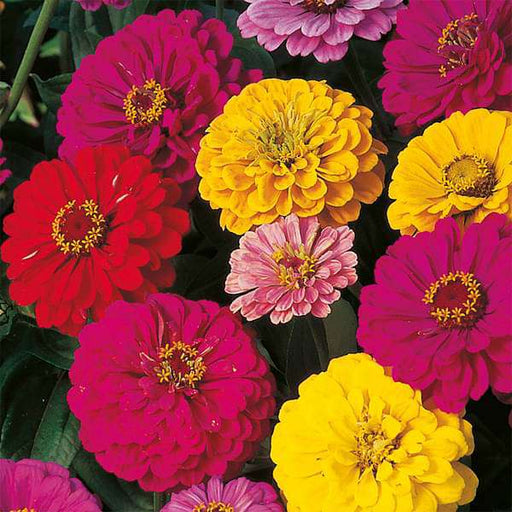 Sold out
Sold out
Zinnia Dahlia Mixed Color - Desi Flower Seeds Transform your garden into a vibrant tapestry of colors with our Zinnia Dahlia Mixed Color -...
View full details
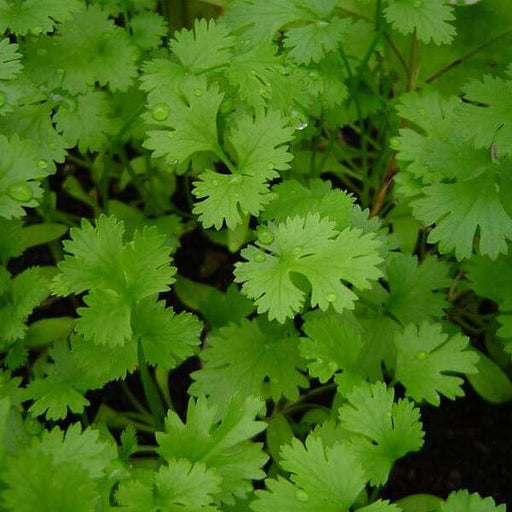 Save 25%
Save 25%
Coriander Panipat - Desi Vegetable Seeds Coriander Panipat is a premium variety of coriander seeds, cherished for its aromatic leaves and ...
View full details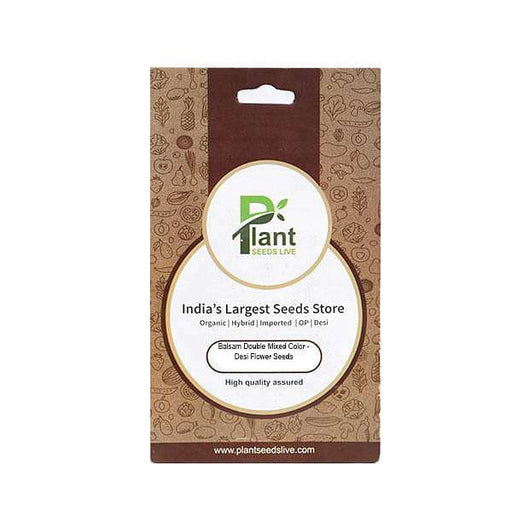
 Save 25%
Save 25%
Balsam Double Mixed Color - Desi Flower Seeds Discover the vibrant beauty of Balsam Double Mixed Color - Desi Flower Seeds, a delightful a...
View full details
 Save 25%
Save 25%
Cherry Tomato, Cherry Tomato Honey - Vegetable Seeds Discover the delightful world of Cherry Tomato Honey seeds, perfect for home gardener...
View full details
 Save 25%
Save 25%
Tomato Pusa Ruby - Desi Vegetable Seeds The Tomato Pusa Ruby is a premium variety of tomato seeds, renowned for its vibrant red color, jui...
View full details
 Save 25%
Save 25%
Spinach All Green - Desi Vegetable Seeds Introducing the Spinach All Green - Desi Vegetable Seeds, a premium variety of spinach that thriv...
View full details
 Save 25%
Save 25%
Capsicum Green - Desi Vegetable Seeds Capsicum Green, also known as bell pepper, is a vibrant and nutritious addition to your garden. Thes...
View full details
 Save 25%
Save 25%
Coriander Panipat - Desi Vegetable Seeds Coriander Panipat is a premium variety of coriander seeds, cherished for its aromatic leaves and ...
View full details
 Save 25%
Save 25%
Cherry Tomato, Cherry Tomato Honey - Vegetable Seeds Discover the delightful world of Cherry Tomato Honey seeds, perfect for home gardener...
View full details
 Save 25%
Save 25%
Tomato Pusa Ruby - Desi Vegetable Seeds The Tomato Pusa Ruby is a premium variety of tomato seeds, renowned for its vibrant red color, jui...
View full details
 Save 25%
Save 25%
Spinach All Green - Desi Vegetable Seeds Introducing the Spinach All Green - Desi Vegetable Seeds, a premium variety of spinach that thriv...
View full details
 Save 25%
Save 25%
Tomato Ped - Desi Vegetable Seeds Introducing the Tomato Ped - Desi Vegetable Seeds, a premium selection of heirloom tomato seeds that pro...
View full details
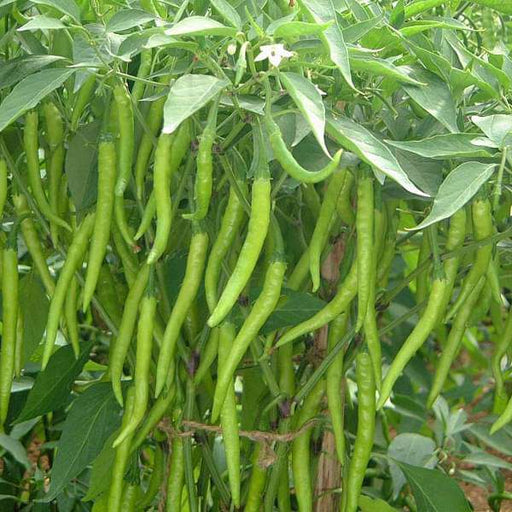 Save 25%
Save 25%
Chilli Surajmukhi - Desi Vegetable Seeds Introducing the Chilli Surajmukhi, a unique variety of desi vegetable seeds that brings a burst o...
View full details
 Save 25%
Save 25%
Carrot Red Long - Desi Vegetable Seeds Introducing the Carrot Red Long - Desi Vegetable Seeds, a premium variety known for its vibrant col...
View full details
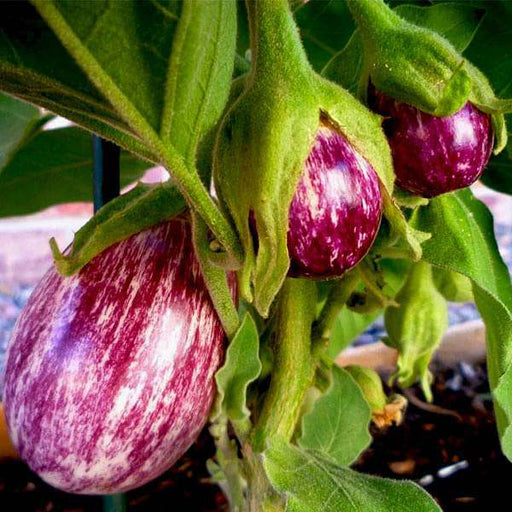 Save 25%
Save 25%
Brinjal Purple Round - Desi Vegetable Seeds Discover the rich flavors and vibrant colors of Brinjal Purple Round, a staple in Indian cuisi...
View full details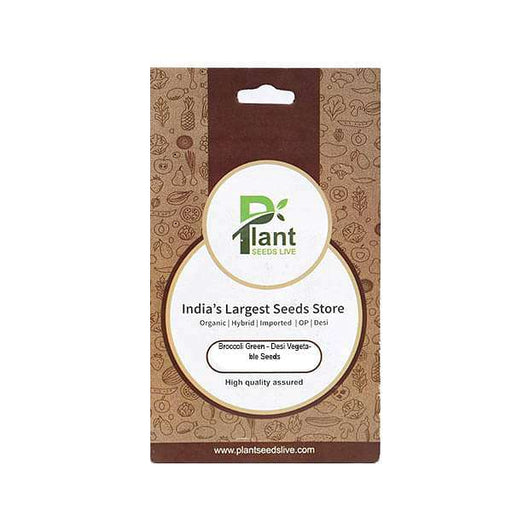
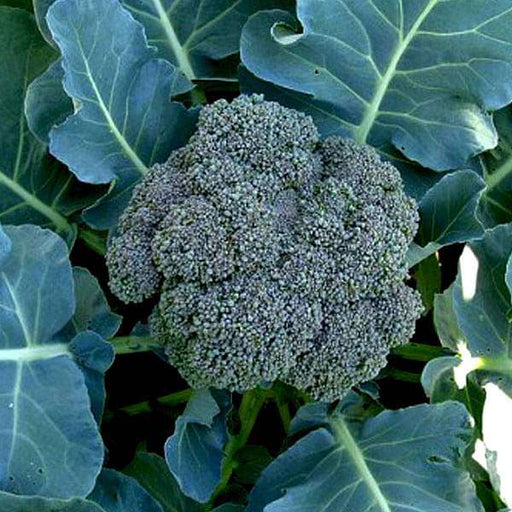 Save 25%
Save 25%
Broccoli Green - Desi Vegetable Seeds Discover the vibrant world of Broccoli Green with our premium Desi Vegetable Seeds. Known for its ri...
View full details
 Save 35%
Save 35%
Best 6 Plants for Perfect Indoor Garden Transform your living space into a lush oasis with our curated collection of the Best 6 Plants for a...
View full details
 Save up to 50%
Save up to 50%
Mini Succulent Garden Pack Transform your space with our Mini Succulent Garden Pack, featuring a delightful collection of 4 any variety beautiful s...
View full details
 Save 30%
Save 30%
5 Best Fragrant Plants Transform your garden or indoor space into a fragrant paradise with our curated selection of the 5 Best Fragrant Plants. Th...
View full details
 Save 24%
Save 24%
Set of 2 Bonsai Looking Grafted Adeniums Transform your indoor or outdoor space with our exquisite Set of 2 Bonsai Looking Grafted Adenium...
View full details Save 45%
Save 45%
Top 4 Die Hard Succulents Pack Transform your indoor or outdoor space with our Top 4 Die Hard Succulents Pack, featuring a curated selecti...
View full details
 Save 30%
Save 30%
5 Best Indoor Plants Pack Transform your living space into a lush oasis with our '5 Best Indoor Plants Pack.' This carefully curated collection fe...
View full details
 Save 25%
Save 25%
Set of 4 Evergreen Air Purifier Plant Pack Transform your indoor space into a lush, green oasis with our Set of 4 Evergreen Air Purifier Pla...
View full details| SrNo | Item Name |
|---|---|
| 1 | Alstonia Scholaris, Ditabark - 0.5 kg Seeds |
Discover the remarkable Alstonia Scholaris, commonly known as Ditabark, a versatile tree native to tropical regions. Renowned for its medicinal properties and ecological benefits, this tree is a staple in traditional medicine and sustainable forestry. With its striking appearance and rapid growth, Ditabark is perfect for reforestation projects and enhancing biodiversity.
Alstonia Scholaris is not just a tree; it's a powerhouse of ecological and medicinal benefits. Its bark is rich in alkaloids, making it a valuable resource in herbal medicine. Additionally, it plays a crucial role in carbon sequestration, helping combat climate change while providing habitat for various wildlife.
This tree is known for its impressive height, reaching up to 40 meters, and its beautiful, glossy leaves. The flowers are fragrant and attract pollinators, making it a favorite among gardeners and environmentalists alike. Its adaptability to various soil types and conditions makes it an excellent choice for diverse landscapes.
Alstonia Scholaris plays a vital role in maintaining ecological balance. Its ability to absorb carbon dioxide helps mitigate climate change, while its deep roots prevent soil erosion. By planting Ditabark, you contribute to a healthier planet and support biodiversity.
This tree is not just a pretty face in the botanical world; it’s a powerhouse of benefits! Known for its medicinal properties, Alstonia Scholaris is often referred to as the "devil's tree" (not because it’s evil, but because it’s a bit of a show-off). Its bark is used in traditional medicine to treat fevers and other ailments. So, if you’re looking for a natural remedy that’s as cool as it is effective, this tree has got your back!
The Ditabark, or Alstonia Scholaris, is like the Swiss Army knife of trees. From traditional medicine to timber, this versatile tree has a plethora of uses. Its bark is a go-to for herbal concoctions, while its wood is prized for furniture and construction. Talk about a multitasker! If you’re into sustainability, planting this tree is like giving Mother Nature a high-five.
So, you’ve got your hands on 0.5 kg of Alstonia Scholaris seeds? Congratulations! Now, let’s talk germination. These seeds are like the introverts of the plant world; they need a little coaxing to come out of their shells. Soak them overnight, plant them in well-draining soil, and give them a cozy spot with indirect sunlight. Patience is key—just like waiting for your favorite show to drop a new season!
Ready to plant your Alstonia Scholaris seeds? Think of it as setting up a new home for your leafy friend. Choose a sunny spot with well-drained soil, and make sure to give it enough space to spread its roots. This tree loves to grow tall and proud, so don’t crowd it! With a little love and care, you’ll have a majestic tree that’ll be the envy of your neighborhood.
Caring for your Alstonia Scholaris is like nurturing a diva—she needs attention! Water it regularly, but don’t drown it; this tree prefers a balanced diet of moisture. Prune it occasionally to keep its shape and encourage healthy growth. And remember, it loves sunlight, so don’t let it sit in the shade too long. Treat it right, and it’ll reward you with a stunning display of foliage.
Alstonia Scholaris is like the wise old sage of the forest, packed with medicinal properties that have been revered for centuries. Its bark is a treasure trove of alkaloids, making it a popular choice in herbal medicine. From treating fevers to aiding digestion, this tree is a natural remedy that’s been tried and tested. Who needs a pharmacy when you have a tree like this in your backyard?
If you’re looking to add a touch of elegance to your garden, Alstonia Scholaris is your go-to tree. With its lush green foliage and impressive height, it’s like the supermodel of the plant world. Perfect for creating shade or as a focal point in landscaping, this tree will elevate your outdoor space. Just imagine sipping lemonade under its sprawling branches—pure bliss!
Planting Alstonia Scholaris is like giving a gift to Mother Earth. This tree plays a crucial role in carbon sequestration, helping to combat climate change. Its dense canopy provides habitat for various wildlife, making it a haven for birds and insects. Plus, it helps prevent soil erosion. So, when you plant this tree, you’re not just beautifying your space; you’re also becoming an environmental superhero!
If you’re impatient for your garden to flourish, Alstonia Scholaris is a fast-growing friend. This tree can reach impressive heights in just a few years, making it a great choice for those who want instant gratification. With the right care, you’ll be watching it soar to the sky in no time. Just remember, good things come to those who wait—unless you’re talking about this tree!
Alstonia Scholaris isn’t just a tree; it’s a cultural icon in many regions. Revered in various traditions, it’s often associated with spirituality and healing. In some cultures, it’s considered sacred, and its bark is used in rituals. So, when you plant this tree, you’re not just adding greenery; you’re also connecting with a rich tapestry of cultural heritage.
Like any diva, Alstonia Scholaris can attract a few unwanted guests. Keep an eye out for pests like aphids and scale insects, which can be a nuisance. But fear not! A little neem oil or insecticidal soap can send them packing. Regularly check for signs of disease, and with a bit of vigilance, your tree will stay healthy and happy, ready to show off its beauty.
Alstonia Scholaris, also known as the Ditabark tree, is a tropical marvel. This evergreen beauty boasts a tall stature and is revered for its medicinal properties. With its striking appearance and ecological benefits, it’s a favorite among nature lovers and herbal enthusiasts alike. Who knew a tree could be so popular
Ditabark is not just a pretty face; it’s packed with benefits! Traditionally used in herbal medicine, it’s known for its anti-inflammatory and antipyretic properties. Plus, it’s a natural remedy for various ailments. So, if you’re looking for a tree that doubles as a medicine cabinet, Alstonia Scholaris is your go-to!
Growing Alstonia Scholaris from seeds is like hosting a party for nature! Start by soaking the seeds overnight, then plant them in well-draining soil. Keep them warm and moist, and soon you’ll have a sprouting friend. Just remember, patience is key—good things come to those who wait!
Alstonia Scholaris thrives in tropical and subtropical climates, where it can soak up the sun and humidity. Think of it as a sunbather who loves warm weather! If you live in cooler regions, consider growing it indoors or in a greenhouse. It’s all about giving this diva the right environment!
Alstonia Scholaris can reach impressive heights of up to 30 meters! That’s taller than your average two-story house. With its towering presence, it’s like the gentle giant of the forest, providing shade and beauty. Just imagine the view from the top—talk about a tree-mendous experience!
Absolutely! Alstonia Scholaris can be a fantastic addition to urban landscapes. Its resilience and ability to adapt make it a perfect candidate for city life. Plus, it helps improve air quality and provides shade. Who wouldn’t want a tree that’s both stylish and eco-friendly in their neighborhood
While Alstonia Scholaris is generally hardy, it can attract a few pesky pests like aphids and scale insects. But fear not! A little neem oil or insecticidal soap can send them packing. Think of it as giving your tree a spa day—refreshing and pest-free!
Watering Alstonia Scholaris seeds is like nurturing a budding friendship—don’t overdo it! Keep the soil consistently moist but not soggy. A gentle sprinkle every few days should do the trick. Remember, too much water can drown your new green buddy, and nobody wants that!
Absolutely! Alstonia Scholaris is a stunning choice for landscaping. Its lush foliage and impressive height make it a focal point in any garden. Plus, it provides shade and attracts wildlife. It’s like having a natural work of art right in your backyard—talk about a conversation starter!
Alstonia Scholaris has a rich history in traditional medicine. It’s used to treat fevers, digestive issues, and even respiratory ailments. With its bark and leaves packed with beneficial compounds, it’s like nature’s pharmacy. Just remember, consult a professional before diving into herbal remedies!
Patience is a virtue when it comes to Alstonia Scholaris seeds! Germination can take anywhere from 2 to 4 weeks. During this time, keep the soil warm and moist, and soon you’ll see those little green shoots popping up. It’s like waiting for a surprise party—exciting and worth the wait!
You can find Alstonia Scholaris seeds at various online nurseries and gardening stores. Just make sure to choose a reputable seller to ensure quality seeds. It’s like shopping for the perfect gift—do your research, and you’ll find the best option for your gardening adventure!